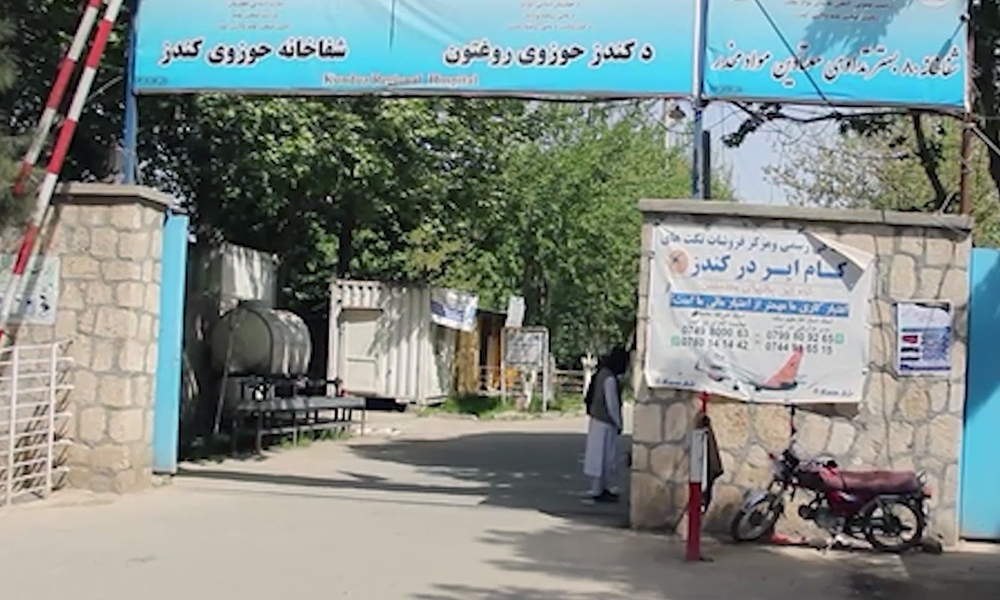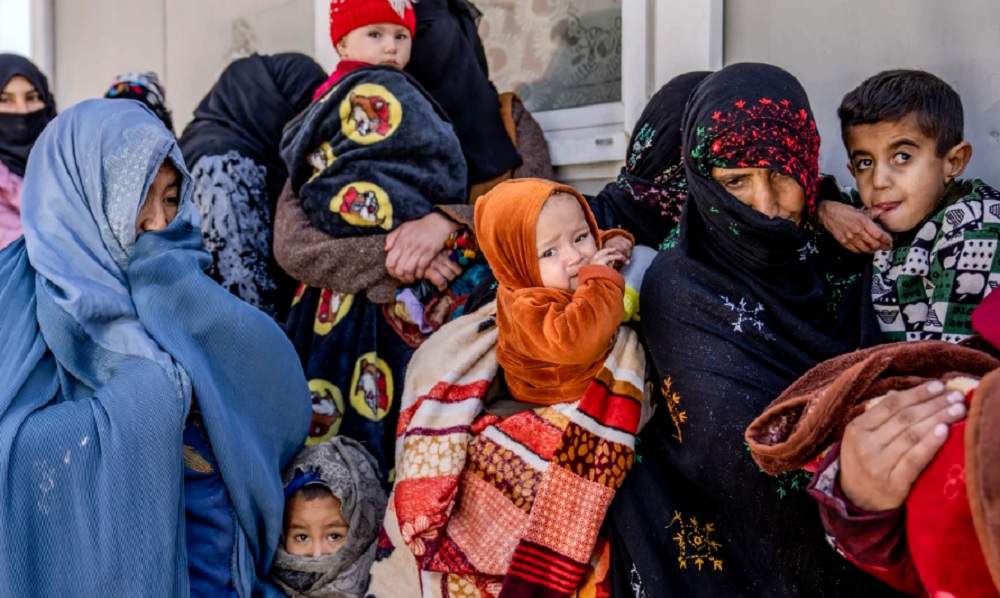Health
Kunduz experiences spike in TB cases

Health officials in the northern province of Kunduz said Sunday that the infectious disease claimed the lives of eight people last (solar) year while 1,700 others contracted the illness.
Patients in the provincial hospital said the main reason for them having contracted the disease was financial woes as they weren’t able to buy healthy food or visit doctors.
“When I contracted the disease, I did not have money. I went to doctor twice but got not result. Finally I came to the center, now I feel good. Thanks to the center,” said Mah Jabin, a patient.
Doctors at the provincial hospital confirm that people’s dire financial situation and poverty are the major causes of the spike in the number of TB patients.
“We registered 1,713 patients of Tuberculosis in the year 1400 whereas the number was 1,605 in 1399. Poverty and economic difficulties are the big reasons behind the increase,” said Nasrullah Anwari, the head of the provincial Tuberculosis program in Kunduz.
In the meantime, Najibullah Sahil, the head of public health in Kunduz province, urged people to cooperate with them by referring people, who have had continuous coughs for more than two weeks, to a clinic.
Sahil said there was medicine available.
Health workers at the clinic said Tuberculosis, which affects a person’s respiratory system, can be fatal but it is also curable.
There are a total of 75 health centers providing treatment for the disease both in the provincial capital and districts.
Health
Balkh health officials report sharp increase in number of cancer patients

Balkh Public Health Department officials say there has been a significant increase in the number of patients with cancer in the province.
“In 1401, about 2,613 OPD (out patient department) cases were registered with us. In 1402, these figures were 4,912 cases,” said Ehsanullah Kaliwal, the head of the oncology department at Balkh Regional Hospital.
Some doctors say genetic factors, environmental pollution, arbitrary use of medicines, and excessive consumption of meat were reasons for the sharp increase.
One doctor said cancer was also hereditry.
However, a large percentage of cancer patients in Balkh have stomach cancer. Many of them have appealed for the government to improve treatment facilities.
According to health officials, in the first month of this solar year (April), 423 cancer patients visited this hospital for treatment.
Health
Majority of Afghans with mental disorders are women: officials

Based on last year’s data, 52 percent of people with mental disorders in Afghanistan are women, the Ministry of Public Health said.
However, after the Islamic Emirate took over the country and with the improvement of nationwide security and the provision of better health services, mental disorders have decreased, the ministry said.
“Overall, the mental security of men and women in Afghanistan is not ensured and their mental security is disturbed. According to the figures shared with us, in 2023, 52 percent of the visitors for mental disorders were women,” said Sharaft Zaman Amarkhil, the spokesperson of the Ministry of Public Health.
“Generally speaking, we can say that compared to the past, the instances of mental illnesses have decreased,” he added.
People suffering mental disorders mostly refuse to share their problem, willingly or unwillingly.
“There are many problems at home; We are poor. I finished school, but didn’t find any job,” Ansar, a mentally ill person, said.
According to the World Health Organization (WHO), half of Afghanistan’s population suffers from mental distress.
Factors such as unemployment, poverty, domestic violence, ban on girls’ and women’s education and work, and drugs are said to be key contributors to mental distress.
Health
Over 1 million women in Afghanistan malnourished last year: WFP

A total of 1.2 million women in Afghanistan were malnourished last year, the U.N. World Food Programme (WFP) said on Thursday.
Mona Shaikh, head of nutrition at WFP Afghanistan, said that the number of malnourished women is expected to increase this year.
On malnourished children, she said that their number will reach 3 million this year, but WFP will be able to assist only 1.6 million of them.
WFP warned that after foreign assistance cuts last year, it saw a rise in children’s admissions to malnutrition clinics in Afghanistan.
More than 23 million people are in need of humanitarian assistance in Afghanistan this year, according to the United Nations. Over half of them are children.
-

 Sport5 days ago
Sport5 days agoACL fever grows as fixtures finalized
-

 Latest News5 days ago
Latest News5 days agoOver 50 people dead in traffic accidents over Eid
-

 Latest News5 days ago
Latest News5 days agoUS identifies Kabul airport suicide bomber
-

 Business5 days ago
Business5 days agoAfghanistan-Kazakhstan chamber of commerce opens in Herat
-

 World4 days ago
World4 days agoIsraeli military vows response to Iran attack as calls for restraint mount
-

 Sport3 days ago
Sport3 days agoATN secures exclusive rights to broadcast Paris 2024 Olympics
-

 Latest News4 days ago
Latest News4 days agoPakistani police give Afghans in Balochistan one day to leave
-

 Latest News4 days ago
Latest News4 days agoHekmatyar slams US for ‘occupying’ Afghanistan’s airspace
























